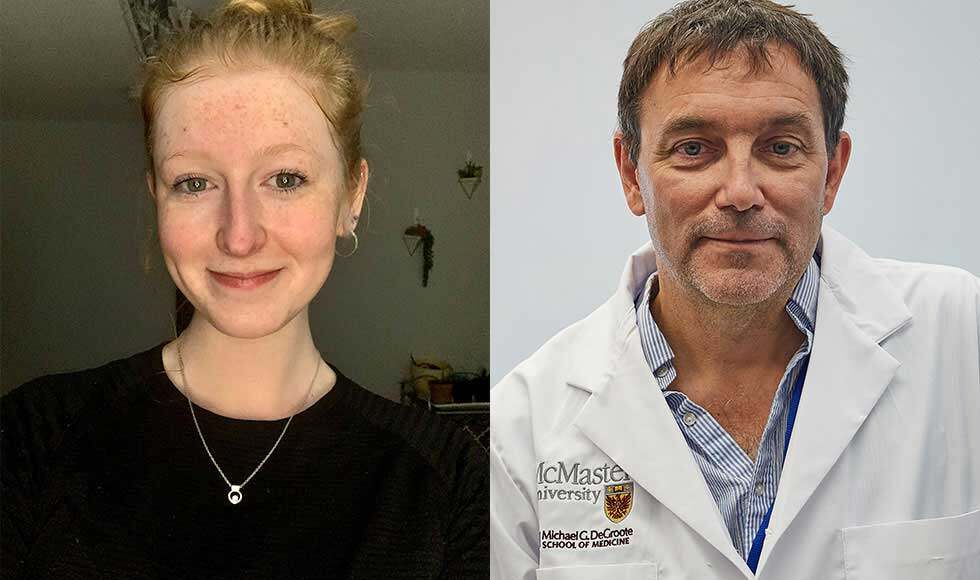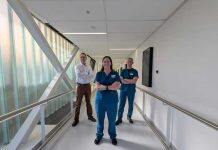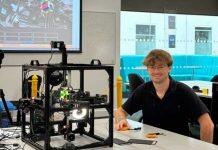

A unique research award is giving an undergrad the opportunity to collaborate with McMaster and University of Guelph researchers studying a pathogen that causes infections in both humans and animals.
Biology student Paige Hopkinson has been awarded the new One Health Summer Research Studentship established through a partnership between McMaster’s Global Nexus School for Pandemic Prevention & Response and the University of Guelph’s One Health Institute.
“When it comes to emerging infectious diseases, society needs leaders who understand the complex relationships among humans, animals and our environment,” said Gerry Wright, Global Nexus executive director.
“This innovative research partnership gives students an opportunity to look at these big societal challenges in a new way.”
Hopkinson will contribute to a shared research project on Clostridioides which is acquired by humans and animals while in healthcare facilities. Some of the strains of the bacteria cause infections that are resistant to antibiotics.
The project is a partnership between Michael Surette, a McMaster professor of biochemistry and biomedical sciences, and Luis Arroyo, a professor in Guelph’s Veterinary College.
“I’m very excited to be able to work collaboratively on this project to investigate pathogens and resistance in the real world,” said Hopkinson. “Working in a research lab has transformed my education.”
The partnership enables researchers to examine infectious diseases through a One Health lens, an interdisciplinary approach that recognizes how our health is closely connected to the health of animals and our shared environment. The World Health Organization (WHO) estimates that 75 per cent of new human pathogens in the last three decades originated in animals.
“Paige is already well trained on the microbiology, having supported a large human microbiome culture program last year,” said Surette. This project will expand her skills, build on established collaborations between McMaster and Guelph, and lay the foundation for future work together, he said.
“I am lucky enough to not only learn biology from the great professors at McMaster, I can actually apply my knowledge in the Surette Lab,” Hopkinson said.
“I am able to have discussions with really amazing scientists from a wide variety of backgrounds about the applications of my education to science research and health care.”
“SINCE MY FIRST DAY WITH THE SURETTE LAB, I HAVE LEARNED SO MUCH AND I CONTINUE TO LEARN EVEN MORE EVERY DAY.”
As part of her summer work term, Hopkinson will examine Clostridia from humans as well as horses, poultry and pigs. Surette and Arroyo hope to identify elements that carry antibiotic resistance and toxin genes between human and animal strains of these bacteria.
Clostridioides difficile is a species that causes diarrhea and can be life-threatening. An environmental survey of the large animal hospital at the Ontario Veterinary College resulted in isolation of C. difficile strains that are close to human isolates from Ontario and some of these isolates have antibiotic resistance of concern.
Another species, Clostridium perfringens carries specific toxin genes that are pathogens of mammals and birds and represent a major pathogen in the poultry industry.
University of Guelph student Arielle Gillies is the other recipient of the One Health Summer Studentship. She will be working on a collaborative research project with Sarah Wooten, pathobiology professor at the University of Guelph, and McMaster professor Matthew Miller, who is the director of the Michael G. DeGroote Institute for Infectious Disease Research.
Gillies will be working on a research project to improve vaccines and therapies for respiratory pathogens.







































